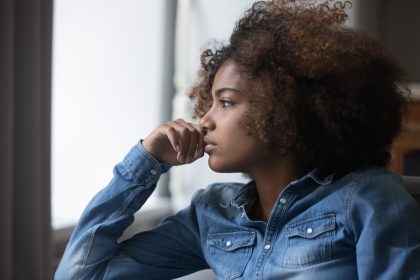The phenomenon of women marrying incarcerated men challenges societal norms, revealing complex emotional and psychological factors that drive these unique relationships. These marriages, though unconventional, represent a growing reality in modern society where love and connection transcend physical barriers.
Despite facing judgment and skepticism from family and friends, many women actively choose to pursue and maintain romantic connections with men behind bars. Their decisions often lead to lasting partnerships that demonstrate how human bonds can flourish even in the most restrictive circumstances, challenging traditional notions of relationships and rehabilitation.
The power of emotional connection
In an age of fleeting digital interactions, the depth of communication between women and their incarcerated partners often develops through traditional means – handwritten letters, scheduled phone calls, and structured visits. These constraints paradoxically create space for meaningful dialogue and emotional vulnerability, fostering connections that many women describe as more authentic than relationships in the outside world.
The absence of typical relationship distractions allows these partnerships to focus primarily on emotional intimacy. Regular correspondence becomes a foundation for deep understanding, with partners sharing their hopes, fears, and daily reflections in ways that might be overlooked in conventional relationships.
Support systems and rehabilitation
Many women who marry incarcerated men view their role as essential to their partner’s rehabilitation journey. Their commitment extends beyond romantic partnership to include emotional support, advocacy, and practical assistance in preparing for life after release.
These relationships often attract individuals with strong nurturing instincts or those who have navigated their own paths through adversity. Their personal experiences create a framework for understanding the challenges of incarceration and the importance of stable support systems in the rehabilitation process.
The complexity of control and security
The structured nature of prison relationships provides a unique dynamic that some women find appealing. Unlike traditional partnerships, these relationships operate within clearly defined parameters, offering a sense of predictability that can feel reassuring. The regulated communication channels and visiting schedules create a reliable framework for building trust and maintaining connections.
This controlled environment also minimizes certain relationship anxieties. The physical separation and monitored interactions reduce concerns about infidelity or unexpected relationship challenges, though they introduce their own set of unique obstacles.
Shared experiences and understanding
The decision to marry an incarcerated person often stems from shared life experiences or similar socioeconomic backgrounds. Women who have witnessed the impact of systemic inequalities or have personal experience with the justice system may feel a deeper connection to partners who have faced similar challenges.
This shared perspective creates a foundation of mutual understanding and empathy. It allows both partners to relate to each other’s experiences without judgment, fostering a sense of acceptance and solidarity that strengthens their bond.
The journey toward redemption
At the heart of many prison marriages lies a profound belief in human potential and the possibility of transformation. Women who choose these relationships often demonstrate unwavering faith in their partner’s capacity for change and growth.
This commitment to supporting rehabilitation reflects a broader understanding of justice that emphasizes redemption over punishment. These women often become advocates for prison reform and rehabilitation programs, using their personal experiences to challenge societal perceptions of incarcerated individuals.
Navigating challenges and finding fulfillment
The reality of maintaining a relationship with an incarcerated partner presents significant obstacles. Women in these marriages face practical challenges like limited physical contact and financial strain, alongside emotional hurdles such as social stigma and isolation from family and friends.
Despite these difficulties, many women report finding deep meaning in their relationships. Their experiences highlight the resilience of human connection and challenge conventional notions of partnership, proving that meaningful relationships can flourish even in the most restrictive circumstances.
This story was created using AI technology.











